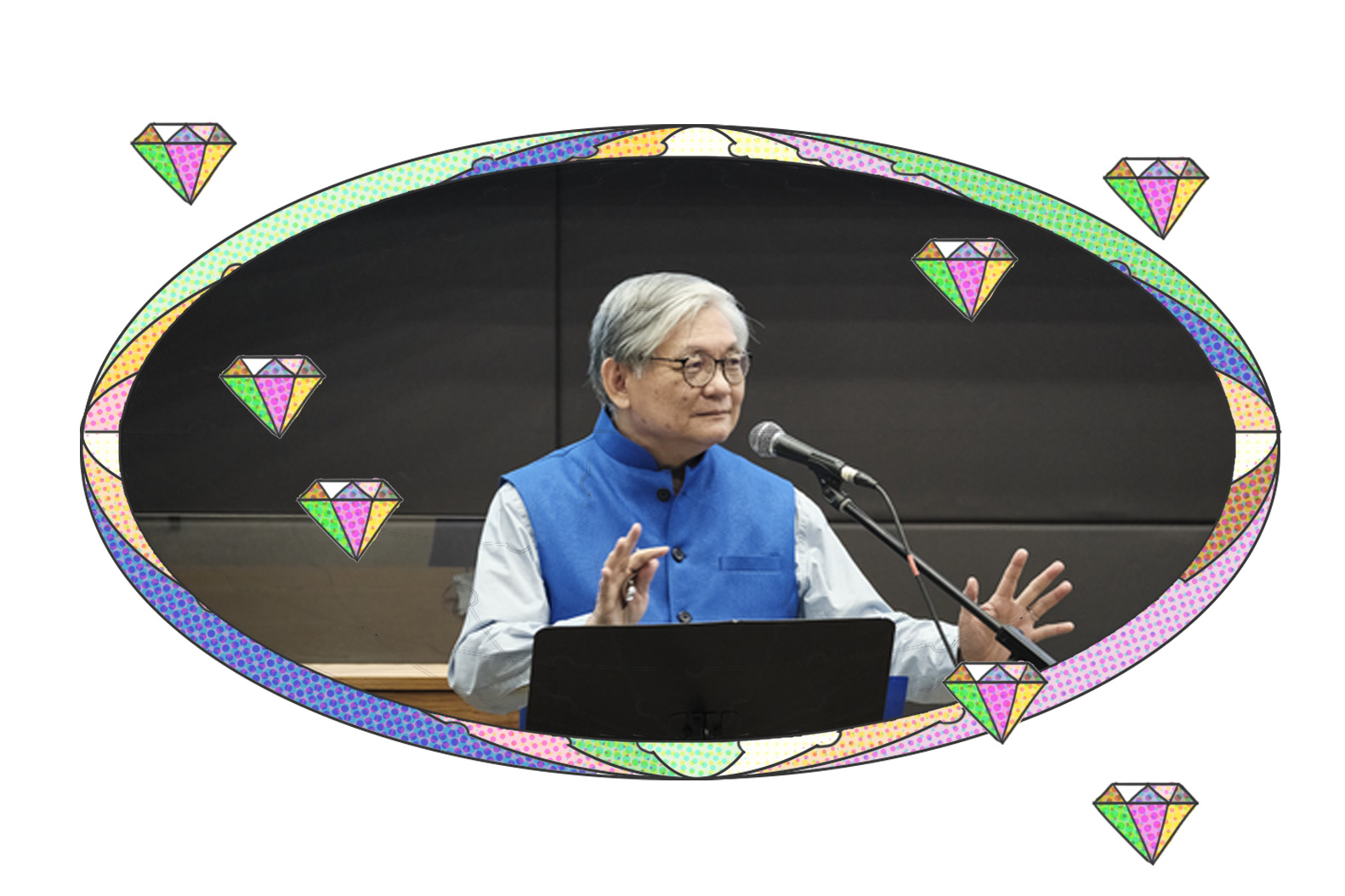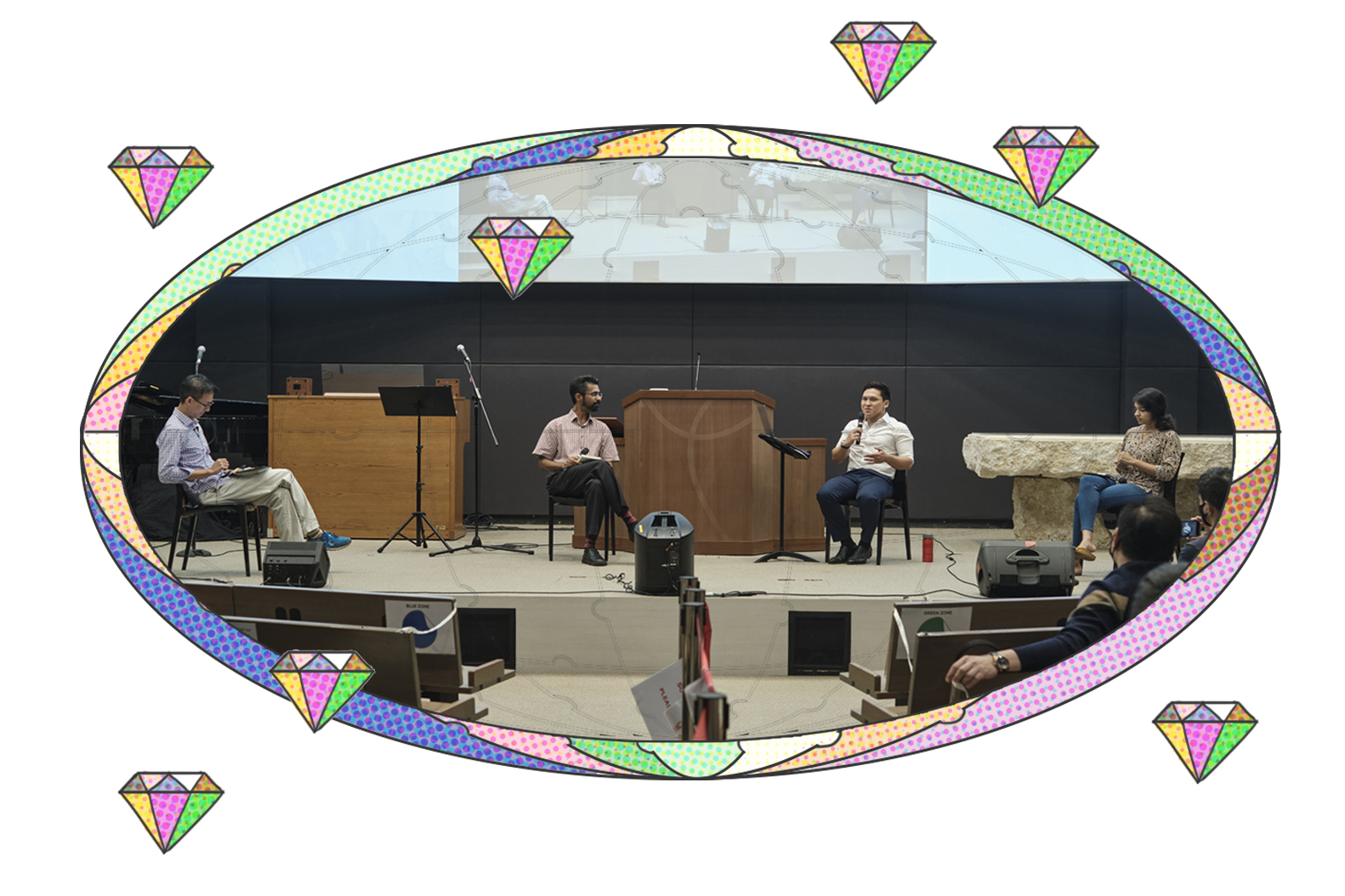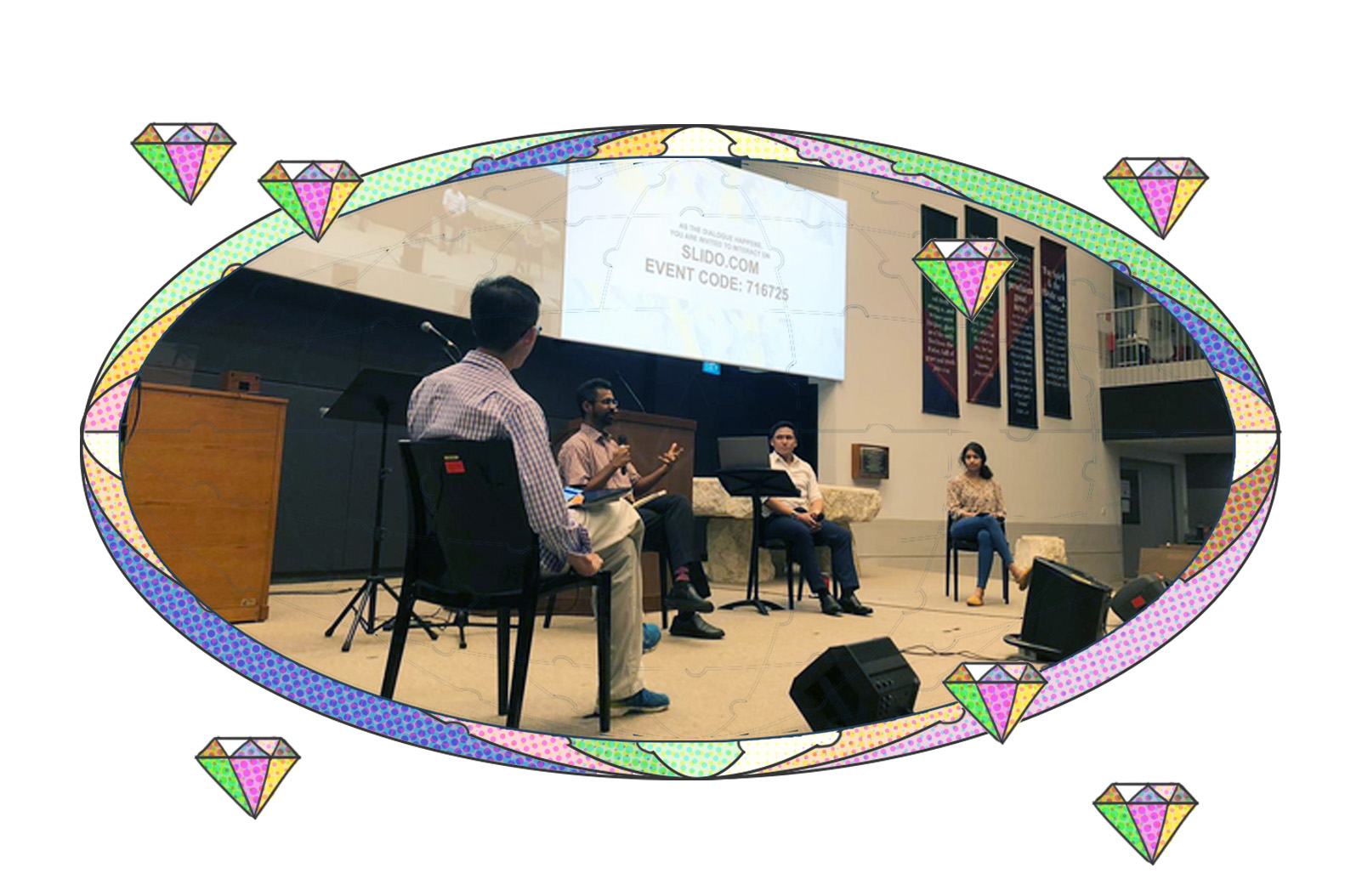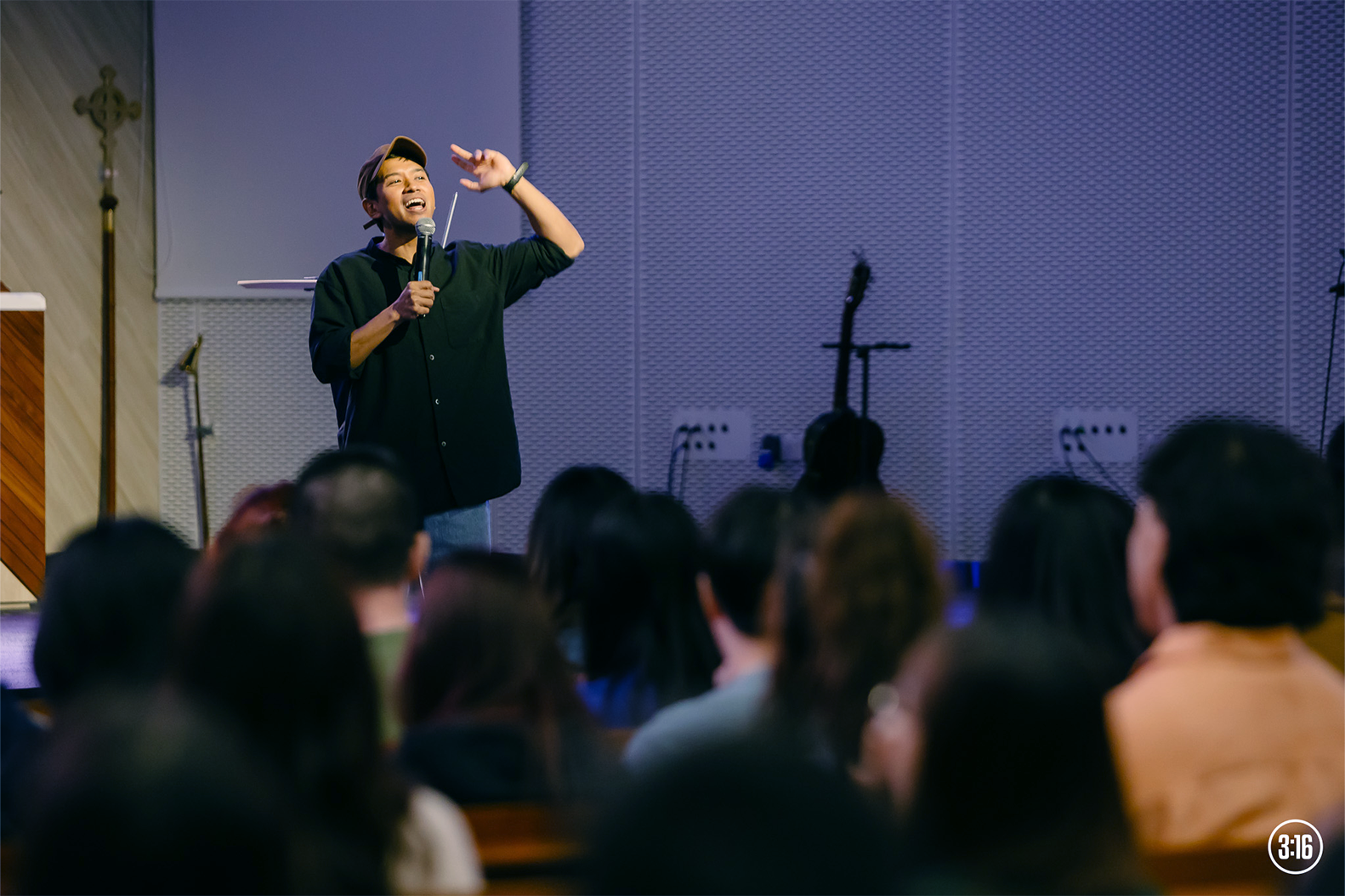If you’re part of Singapore’s ethnic majority, like me, then the idea that some of your fellow believers might encounter racial biases in church may be shocking to you.
Yet the thing about racial prejudice is that once you’ve seen it, you can’t really unsee it. That’s how it was for me.
“That multiracialism and religious harmony are cornerstones of Singapore’s governing political ideology is something that I will never take for granted, especially in a world of deepening polarizations and inter-ethnic strife.
“Yet, racism is a uniquely malleable sin. It finds ways of adapting to new grievances, even as the memory of the 1964 riots continues to haunt modern Singapore.”
That quote is from the chapter “On Foreignness”, read verbatim by its contributor Jonathan Chan, at the launch of Good News for Bruised Reeds: Colours of the Kingdom on April 3, 2020.

Dr Tan Soo Inn, chairman of Graceworks, which published the book, shared that the philosophy behind the Bruised Reeds series is to listen to people, their feelings, stories, sorrows and joys.
“If you want to have a united church, you’ve got to be sensitive not just for right doctrine but to sensitivities,” he said.
“We’re here not just to get the right doctrine — of course there’s no place for racism in God’s kingdom — but more than that we understand the stories of the different races and how we are able to communicate in ways that do not trample on each others’ feelings.”
As Christians, have we realised how prejudice and biases have played out in our churches too?
To that end, the compilation seeks to tell the personal stories of believers who have faced varying degrees of racial prejudice in the church, as well as believers who have been convicted to repent of their biases and prejudices.
Within the book are also reflections from church leaders and contributors on how to respond to racial prejudice in church and ways to move forward as one Body.
It is important to note the book’s audience and objective. “The primary audience of this book is Christians, whether in leadership or not, for reflection, encouragement, and equipping on this topic,” reads the book’s description.
“This is not a book to shame or blame local or majority ethnicity Christians, but a call out of love for the whole Church to reflect and work towards becoming a more united and inclusive gospel community reflecting the biblical vision of multi-cultural diversity.”
Compared to the previous two books, which looked at same-sex attraction and mental illness, racial prejudice in the Church is a topic that is arguably less talked about (and perhaps therefore more insidious).
With hatred and prejudice seemingly on the rise around the world, discrimination has been cast into the spotlight. Many have started realising that the issues we face are much more deep-seated and multifaceted than it seems.
As Christians, have we realised how prejudice and biases have played out in our churches too?
Allow me to share my reflections on the issue, neither as an expert, nor as a spokesperson for the underrepresented, but simply, and humbly, as someone who cannot unsee what he has seen.
1. START WITH REPENTANCE
During the book launch, two teams which were issued the challenge of fostering greater inclusivity in church for members of ethnic minorities at the recently held Micah-thon were called on to share their proposed solutions.
Starting with creating opportunities for honest conversations, they proposed having more formal and facilitated open dialogues and targeted prayer groups.
They also suggested giving voice and visibility to underrepresented minorities in church activities, especially in outward-facing ministries such as evangelism, welcome and integration.
Finally, they suggested the creation of a common resource to pool together collective learning and wisdom, which could look like compiling a handbook of best practices, or even curating Spotify playlists of worship songs in different languages.
I was particularly moved by Team 5.
Beyond sharing their solutions, the team consisting of four Chinese Singaporean Christians also elaborated on the journey of repentance that the project took them on. I was taken by their honesty and humility.
The team shared that the first things that came to mind when they were working on the proposal were questions like:
- Really meh? Is there really racial prejudice in church?
- Is this really an issue?
- Do we really need to deal with this?
Yet they continued to unpack the issue by speaking to Christians of ethnic minorities. These people shared their lived realities of church being a place where they had faced a crisis of identity because of their race.
One respondent explained that as a young Christian of a minority race, he felt forced to choose between his faith and identity in Christ and his cultural heritage, with little help from leaders who were not equipped to navigate these cultural tensions.
In his own words: “Culture and tradition are so intertwined with religion but no one asks why and tries to clarify. I ended up cutting off everything because it was the easiest way.”
Another shared that during her primary school years, she felt her race the most when in church. She was often called the “brown girl” or “the Indian one.”
Moved by what they had heard, the team quickly realised that they needed to come to a point of repentance.
“God, we want to repent to you for our heart. We want to repent to you for our lack of sensitivity and our ignorance,” they prayed.
There and then, I felt not only the weight of my own ignorance, but my contempt too.
I was only now beginning to have my eyes opened to the struggles of Christians of ethnic minorities — and yet I found myself remaining somewhat unmoved!
Part of me was still sceptical. I wondered whether these experiences were true only for those who were more sensitive. Was it the case for every Christian of an ethnic minority? Were things really as bad as they sounded?
Listening to the speakers share about their worst experiences with racial prejudice in church still seemed to me like an intellectual discussion, when this was someone else’s lived reality.
It was only when I witnessed the humility of that team’s prayer that I realised my need for repentance too.
I was guilty. I am guilty.
“You never really understand a person until you consider things from his point of view, until you can climb inside of his skin and walk around in it.”
A famous quote by Harper Lee came to mind. It’s the quote that reminds me, time after time, to suspend my scepticism and practise active listening.
“You never really understand a person until you consider things from his point of view, until you can climb inside of his skin and walk around in it.”
It was a humbling moment but a necessary one, because what had been shared at the launch could have remained as discourse, if I had not let it sink in and convict me of my own culpability.
Racial prejudice and biases in their own churches are indeed things that some Christians face. I only never saw it because I wasn’t used to seeing it. But now that I had seen it, I couldn’t possibly unsee it.
But that mea culpa, I believe, was my first step towards becoming more sensitive.
2. QUESTION YOUR ASSUMPTIONS
The panel discussing how the Church should rightly respond to racial issues consisted of Pastor Dev Menon and Hendra Roy Ösland, both of whom are contributors to the collection, as well as one of the book’s editors, Prarthini M Selveindran.
A common thread that was evident in all their responses was that not being racist was not enough.
Am I a passive onlooker or an active bystander?
Instead, a right response would have an intentionality in pushing back against racial biases, and a constant process of renewal through unlearning biased assumptions and relearning new ones.
It made me think: As part of the ethnic majority, am I a passive onlooker or an active bystander?
Prarthini’s words provided me a way forward: “It would be helpful to have critical reflection on the interactions we have with the ‘other’, to reflect on the assumptions we make and what undergirds these assumptions.
“Why do we have these assumptions, where do we pick it up from? Therefore, acknowledge your part in having those assumptions.”
She also added that it is important to “say sorry if you’ve made a mistake in the kind of interactions you’ve had with someone and you’ve offended someone in some way”.

3. PARTNER ONE ANOTHER
Christians who are part of the ethnic majority can start being involved in building an inclusive church.
This was made clear to me when Hendra spoke about his “best” experience concerning racial bias in the church.
During a discussion with parents on managing their child’s digital usage, in response to a parent who shared that she restricted her child’s digital usage to a mere five minutes a week, Hendra expressed his belief that it was more important to teach self-control than to enforce control.
To his chagrin, the dismissive rebuttal to his well-intended comment was simply: “You’re different because you’re from a different culture.”
Yet, what could have been Hendra’s worst encounter with racial bias turned into his “best” because a fellow brother-in-Christ defended him by reminding that parent not to bring race into the discussion.

Hendra also shared how the church he worships at has taken heartwarming steps to build an inclusive space for Christians of ethnic minorities, through practical steps like translating phrases from Mandarin to English, or even including praise songs in other languages in worship services.
“It’s very, very touching,” he said. “Even though it’s only three to four minutes every two to three weeks or so, it’s really very touching that they acknowledge my ethnicity and culture there. Having a worship song in my language really makes a difference.”
Such inclusivity can only be achieved when the ethnic majority understands and empathises with the plight and needs of the underrepresented minorities.
But it really takes both hands to clap.
It is also necessary for minorities to choose grace in helping members of the ethnic majority to understand their struggles. Both majorities and minorities must be partners in this endeavour.
“It’s an enduring series of daily countercultural decisions to choose forgiveness, to choose repentance, to choose humility over self-centredness – over participation in unquestioning postures or attitudes or conversations,” explained Prarthini.
“And this call is for critical reflection on our parts, not just the majority, but the minority as well, on how we want to imagine, do and be Church.”
“There is no quick answer to this,” noted Pastor Dev.

Indeed, this struggle with prejudice and biases is but an echo of our very complex struggle with sin.
Yet personally, as a Chinese Singaporean Christian, just because issues concerning racial prejudice cannot be fully solved this side of eternity, does not mean that we cannot do better either.
As God’s people, the Church is meant to mirror what the kingdom is supposed to look like. This isn’t about being woke, but about being right with God.
As we seek to do that, Pastor Dev’s encouragement was to look to what is recorded about eternity for hope and for vision.
Pastor Dev pointed to the end of the book of Revelation, where the glory and honour of all the nations will be brought into the new creation (Revelation 21:26).
As God’s people, the Church is meant to mirror what the kingdom is supposed to look like.
“I’ve spent a lot of time thinking about that ever since years ago,” he revealed. “Will Jesus actually bring the differential worship and faith expressions of different tribes and ethnic communities, and add them to the new creation?
“That means He hasn’t got this homogenous plan, but He wants to take all the diversity, which He will cultivate, and put them together into this amazing orchestra.”
Pastor Dev shared that as someone who has struggled to figure out where he fits in, hearing that God has a special role for him to add “flavour” to the new creation in eternity – right down to his “nationality”, “ethnicity” and “tribe” – is something that encourages him.
“If I understand that correctly, that’s just really hopeful.”
For more stories and reflections of Christians in Singapore who have grappled with issues of ethnicity or nationality in the Church, check out Good News for Bruised Reeds – Colours of the Kingdom by Micah Singapore and Graceworks.

- How important is rooting out racial bias and prejudice to you?
- What are the assumptions you need to question?
- What is your part to play in the fight against racial prejudice?









